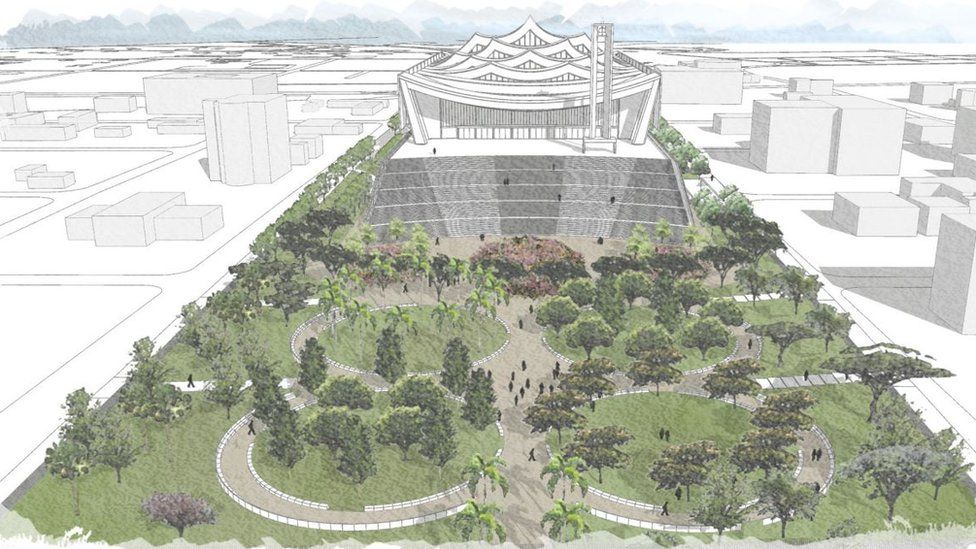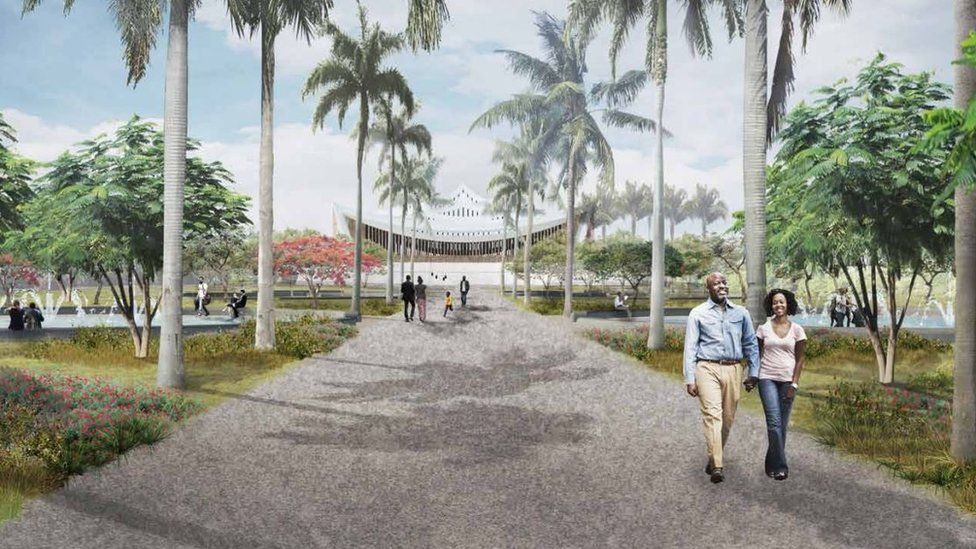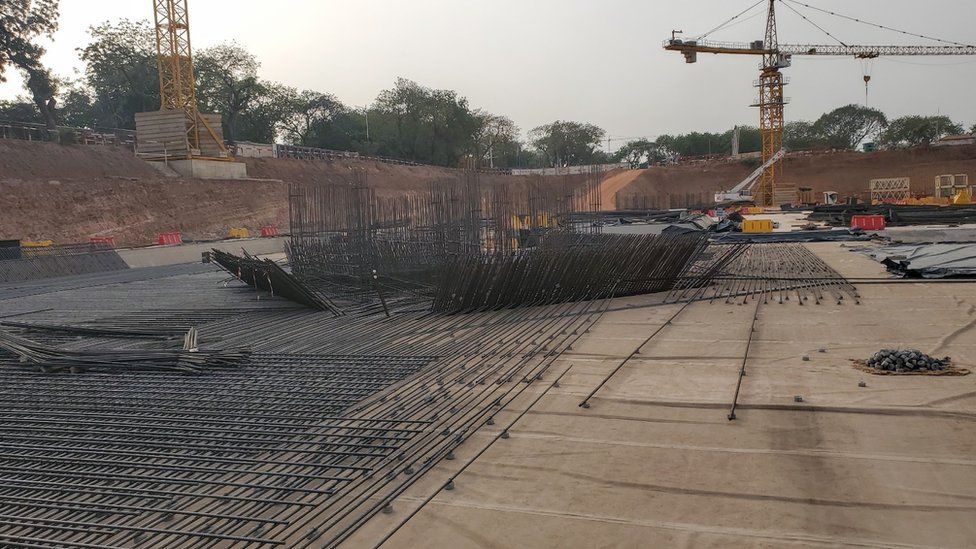President Nana Akufo-Addo is developing an architectural marvel in heart of Ghana’s capital, Accra in honour of the Almighty for His blessings, favour, grace and mercies on Ghana
The National Cathedral of Ghana is either a symbol of the country’s strategic and bold investment.
In a speech at the turn of the new year, President Nana Akufo-Addo, scoffing at critics and renewed his commitment to the religious building.
“The National Cathedral is an act of thanksgiving to the Almighty for His blessings, favour, grace and mercies on our nation,” the president said at the construction site where a Bible-reading marathon had been taking place.
God, he said, had spared Ghana from conflict that had afflicted many countries, including some of its West African neighbours, who have been dealing with numerous security challenges.
The president then announced a personal donation of 100,000 cedis ($8,000; £6,700) towards the construction costs. It was envisioned to be a sacred space for all Christians, who make up 70% of the population, and where national religious services could take place.
Mr Akufo-Addo first revealed plans for the cathedral after he won the 2016 election and the architect was appointed two years later. But work on what the president has referred to as “his gratitude to God” only began in 2022, two years after his re-election.

A nine-acre site of prime land between the parliament building, the national theatre and the international conference centre, was hived off for the National Cathedral.
Drawing inspiration from Ghana’s rich arts and culture, the cathedral will have a high pitched staggered roof imitating the architecture of the Akan people. It will also include emblems like the royal stool from the Ashanti people and ceremonial canopies.
Artists from Ghana and other African countries will be invited to create the cathedral’s religious adornment and furnishings.
According to the plan, the main building will have 5,000 permanent seats with room for thousands more, a music school, an art gallery, shops, a national crypt for state burials and it will also be home to Africa’s first Bible museum.

Mr Mensah said “We’re looking at what great cathedrals did to Europe by extending the frontiers in music, art and engineering, but given the economic conditions we face, we can review our plan, like do phased construction and reconsider what type of artefacts we install in the building,” he said.
